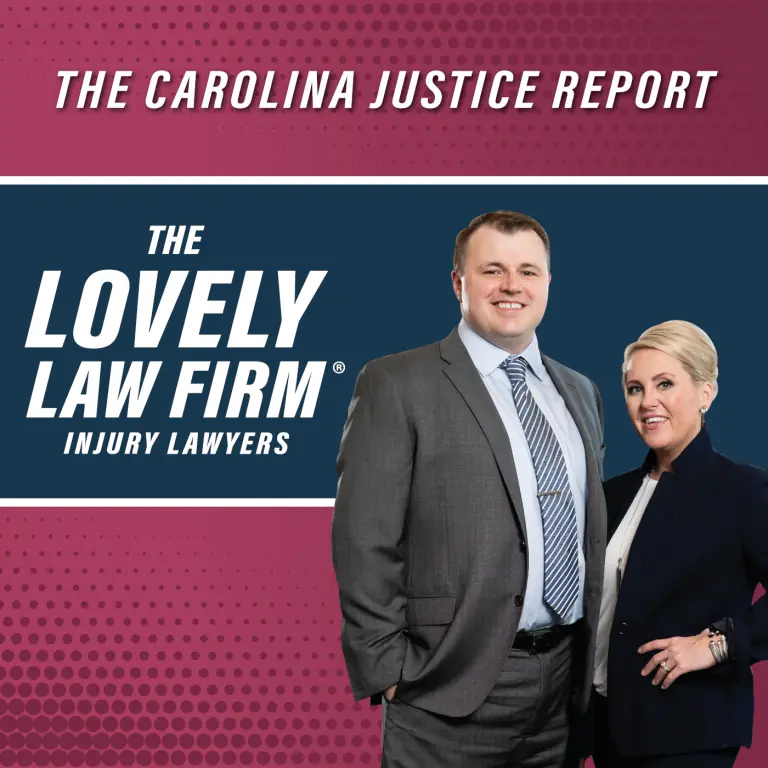Myrtle Beach, SC is a popular vacation destination known for its beautiful beaches, golf courses, and amusement parks. Additionally, twice a year tens of thousands of motorcyclists gather to celebrate Myrtle Beach Bike Week. For both residents and tourists, Myrtle Beach, SC is the perfect place to enjoy the beautiful weather and myriad of adventures.
However, Myrtle Beach also sees a significant number of TBIs each year due to the numerous activities and attractions that are available to visitors and residents. In fact, the South Carolina Department of Health and Environmental Control (SDHEC) states that in 2020 there were 1,492 traumatic brain injury (TBI) related deaths, as well as 4,462 hospital releases with a TBI diagnosis. These injuries can range in severity, from mild concussions to severe brain damage, and can have significant impacts on the lives of those affected. It is important for individuals to be aware of the potential risks and to take precautions to prevent TBIs whenever possible.
On This Page:
If you or a loved one has suffered a traumatic brain injury near Myrtle Beach, South Carolina it is important to seek legal representation as soon as possible. Our team of experienced traumatic brain injury lawyers at The Lovely Law Firm Injury Lawyers can help you fight for the compensation you deserve. Victims of accidents that have developed traumatic brain injuries should never go uncompensated. By contacting us today for a free consultation victims let us help them take the first steps toward getting the justice and financial support they need.
What Is A Traumatic Brain Injury?
Traumatic brain injuries (TBIs) are a type of injury that occurs when the brain is damaged by a blow or jolt to the head. This can be caused by a variety of things, including car accidents, falls, sports injuries, and assaults. TBIs can range in severity from mild to severe, with symptoms ranging from temporary confusion and dizziness to permanent disability or death.
TBIs can have a significant impact on the brain. It is common for the brain to swell following the initial trauma. This may lead to further bleeding and reduced blood circulation as the brain tissue pushes against the inside of the skull. In the absence of treatment, parts of the brain may become starved of oxygen and other nutrients, resulting in the death of brain cells. In most cases, it is this and cell death that is responsible for the most common symptoms of a TBI.
When a traumatic brain injury occurs, it often results in physical damage to the brain tissue and can cause problems with cognitive functions such as memory, attention, and decision-making. TBIs can also affect emotional and behavioral regulation, leading to mood changes, irritability, and difficulty controlling impulses. In severe cases, TBIs can cause coma, vegetative state, or even death. The long-term effects of TBIs can vary widely, with some individuals fully recovering while others may experience lasting disability. The extent and severity of the effects of TBIs depend on the location and extent of the brain damage, as well as the age and overall health of the individual.
How Are Traumatic Brain Injuries Diagnosed?
After a head injury, the victim’s healthcare provider will conduct an examination and inquire about any symptoms. Additionally, most healthcare practitioners will want to learn more about what caused the injury. Depending upon the severity, and the doctor’s observations, they may conduct:
- Imaging Tests – These include CT scans or MRIs which check for brain bleeds and swelling
- Neurological Evaluation – A neurologist examines the victim’s memory, thinking, motor function, and sensory functions.
- Blood Test – A test called the Banyan Brain Trauma Indicator (BTI) identifies proteins in the blood that indicate a concussion or mild TBI has occurred.
If a victim of an accident believes that they have a traumatic brain injury, our TBI attorneys in Myrtle Beach, SC will be able to help find the right kind of medical treatment for them.
How To Choose The Right Traumatic Brain Injury Lawyer in Myrtle Beach
What Are The 8 Types Of Traumatic Brain Injury?
It is generally accepted that traumatic brain injuries can be divided into two main categories:
- Closed Head Injuries – Closed head injuries are far more common as typically occur when the head is struck but the skull remains closed, or intact. Following a closed head injury, victims may experience headaches, dizziness, and nausea for several weeks.
- Open Head Injuries – An open head injury is the result of a foreign object striking the head and causing a skull fracture – such as a slip and fall accident, or a truck accident. Localized tissue damage is also caused by these penetrating injuries. An individual may experience bruising, swelling, and internal bleeding as a result of this injury.
There are 8 types of traumatic brain injury that can be sustained, which are divided into these two main groups. From least severe to most severe, the 7 types of TBI that can occur are:
Concussions
In terms of traumatic brain injuries, concussions are the most common. Many people sustain mild concussions from sports, slip and falls, and motor vehicle accidents. The brain moves in the direction of the force until it collides with the skull as a result of a strong force striking the skull.
While concussions were once considered only a minor inconvenience by doctors, they are now considered serious medical conditions. This is especially true in terms of playing contact sports, such as football, where players are constantly hitting their heads against each other. There can be a wide range of concussion symptoms, ranging from mild to severe, and in some cases, life-long effects may occur.
Concussion cases, no matter how severe, are often referred to mild traumatic brain injury lawyers near Myrtle Beach or concussion lawyer in Myrtle Beach, South Carolina, as they have the most experience in dealing with these kinds of cases.
Contusions
Contusions, also known as bruises on the brain, are commonly associated with concussions. They are a form of mild brain hemorrhaging and may manifest as a coup-contrecoup injury, in which damage occurs in two separate areas of the brain. If left untreated, contusions may progress into hematomas, which may require surgical intervention to remove. The extent of harm caused by a contusion is determined by factors such as its size, location, and duration.
Hemorrhages Of The Brain
A brain hemorrhage is a type of injury that occurs when there is uncontrolled bleeding on the surface of the brain or within the brain tissue itself. There are two types of brain hemorrhages: subarachnoid hemorrhages, which occur in the space surrounding the brain, and intracerebral hemorrhages, which originate in the cerebral matter. Both types of brain hemorrhages can be serious and require prompt medical attention.
Hemorrhages are a type of focal traumatic brain injury, which refers to a localized injury that only affects a specific part of the brain. While these injuries tend to cause less severe damage compared to other forms of TBI, they can still be potentially lethal if not treated promptly.
Intracranial Hematomas
Hematomas are pools of blood outside of the vascular system. When located in the brain, these hematomas can lead to severe harm and even death if left untreated. There are various types of brain hematomas, including:
- Epidural Hematomas – Collection of blood between brain and skull
- Subdural Hematomas – Collection of blood under thin protective layer surrounding brain
- Intracerebral Hematomas – Blood collects within the brain itself
It is possible for hematomas to develop days or weeks following a head injury, and individuals experiencing symptoms such as vomiting, intense headaches, unequal pupil sizes, and slurred speech should contact a medical professional immediately.
Coup-Contrecoupe Brain Injury
A coup-contrecoup injury is a serious type of traumatic brain injury that occurs when an individual’s head strikes a stationary object, resulting in two separate injuries. The first injury, known as a coup injury, occurs at the point of impact, while the second injury, known as a contrecoup injury, occurs on the opposite side of the brain from the initial impact. This type of injury often occurs when an individual’s head slams against a steering wheel or other stationary object, causing the brain to move forward and collide with the front of the skull before rebounding and striking the back of the skull with sufficient force to cause a second impact.
Diffuse Axonal Injury (DAI)
Diffuse axonal injuries are a particularly severe form of traumatic brain injury that occurs when the brain is subjected to forces that cause it to twist or shake within the skull. This movement causes the cerebral tissue to slide back and forth, leading to the tearing of the long fibers within the brain known as axons. This process, known as axonal shearing, interferes with the ability of neurons to transmit messages, resulting in impaired brain function.
One of the challenges in diagnosing diffuse axonal injuries is that they often result in only microscopic tears, which can be difficult to detect through imaging techniques such as magnetic resonance imaging (MRI). The severity of the symptoms experienced by individuals with diffuse axonal injuries depends on the size and location of the tears. The greater the number of axons that are torn, the more severe the effects are likely to be.
Penetrating Brain Injury
Penetrating head injuries, as their name suggests, are characterized by the penetration of an object into the skull and brain, typically a bullet. These injuries often result in seizures and an increased risk of developing epilepsy following a traumatic brain injury (TBI) in comparison to other types of brain injuries. It is imperative to refrain from removing any object that has become lodged in an individual’s skull until they have been thoroughly examined by a medical professional, as doing so may exacerbate bleeding and potentially cause additional harm.
Second Impact Syndrome
Also known as a recurrent traumatic brain injury, this type of injury occurs when an individual experiences a second brain injury shortly after the initial injury. It is important to note that the second injury is often more severe than the first, resulting in significant negative impacts on an individual’s health. Therefore, it is imperative that one seeks medical attention immediately after experiencing a blow to the head following a previous brain injury, regardless of whether or not they feel fine or lost consciousness.
Contact an Experienced Myrtle Beach Brain Injury Attorney at The Lovely Law Firm, P.A. Call 843-839-4111 or contact us online. We offer a free consultation and guide you through the legal process, taking the necessary steps to recover the compensation you need and deserve. If you or someone you care for has been impacted by a traumatic brain injury due to someone else’s negligence, our team of highly qualified lawyers are here to help you ensure the bills are paid and you’re back on your feet as soon as possible. Give us a call, and we’ll perform a free case evaluation!
What A Happy Client Says About The Lovely Law Firm on Google
The Lovely Law Firm was kind and always kept me updated. I was never lost during the process. They settled my case efficiently. Every member of the team was helpful. Special thanks to Allison for working to get my medical bills worked out and my attorney, Sharde’, for not taking “no” for an answer.
Alyana A.
⭐⭐⭐⭐⭐
We’re Proud of Our 4.9/5 Rating Across 700+ Reviews on Google! Give us a call today! We’re nearby and we can help!







